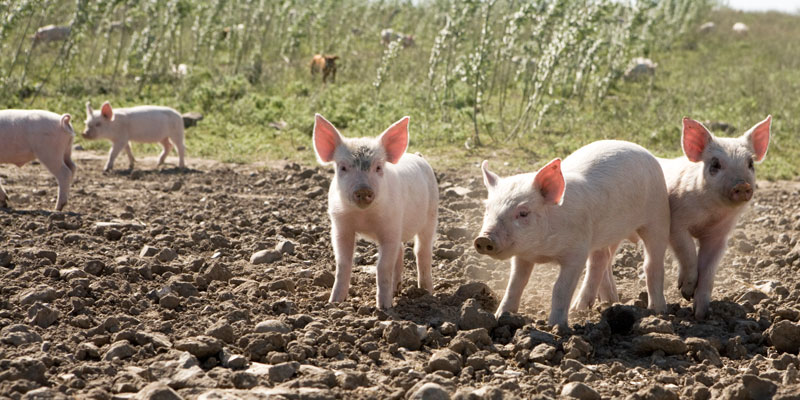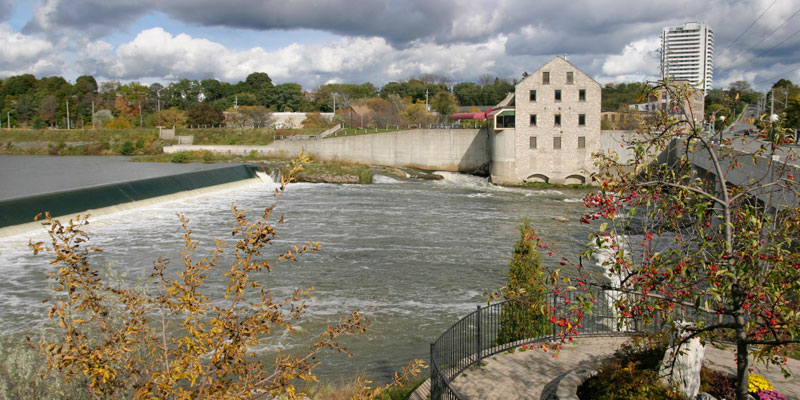Assessment of Regional Water Resource Impacts from Agriculture: A performance-based Approach to Evaluating Risk, Alternative Practices and Economic Implications
Principal Investigator - David Rudolph, Professor, University of Waterloo (2006-2008)

Challenge
In order to produce competitive crops, farmers need to use intensive agricultural practices which include the use of pesticides and fertilizers. However, these practices are known to degrade water quality. Water quality degradation resulting from present and past land-use activities has evolved from a topic of concern to a major regulatory issue nationally. Agriculture has drawn significant attention in recent years due to the enormous land area involved, its implication in documented groundwater quality impacts, and the complexity of the socio-economic issues involved. Previous research has found that regional-scale application of nutrients, including manure and fertilizers, likely represents the most significant agricultural threat to groundwater quality. Provinces across Canada have struggled to develop legislative frameworks for source water protection; one reason being regional scale information is lacking and is required to ensure proposed regulations are effective.
This project, led by Dr. David Rudolph, has investigated these issues at a national scale by establishing pilot-scale research facilities that represent agricultural settings across central and western Canada. The overall goal of this research is to provide regulatory agencies with: 1) an understanding of current levels of impact to regional groundwater quality; 2) strategies to monitor levels of impact and regional assimilation capacity; 3) scientific and performance-based guidance of the effectiveness and economic viability of alternative beneficial management practices (BMPs); and 4) approaches to assess risk associated with different agricultural land-use practices.
Project
Detailed field experiments are focused mostly at established research facilities with the objective of quantifying current impacts from nutrient and pathogen (viruses and bacteria) species through innovative physical and chemical monitoring protocols, and the application of simulation tools. A priority issue of this project is evaluating field data to enhance understanding of non-point source impacts at a regional scale. This analysis will include determining areas of highest risk, the economic implications of adopting various BMPs, the benefits BMPs present concerning groundwater quality. Test sites include Oxford County, Ontario; Assiniboine Delta Aquifer, Manitoba; South Okanagan Aquifer, British Columbia; and Crowfoot Creek Watershed, Alberta.
This research project also investigates soil-water budgets. The dynamic nature of water and solute mobility in the near-surface water environment controls recharge and contaminant flux; this is a critical process for estimating regional impacts of agriculture on groundwater quality. Analyses of long-term average water budgets do not allow for inclusion of annual variability and may result in poor estimates of groundwater recharge, non-point source contaminant leaching, and low stream flow. This study developed water budgets for five different regions of Ontario using models and compared them to field sites.
Outputs
- Involvement with Ontario Pork in meetings such as the Ontario Farm Environmental Coalition meeting, where researchers shared results with members and farmers.
- Initiation of a new CWN/MOE funded project on pathogens in groundwater.
- Development of plain language materials to communicate the research to raspberry growers in BC.
- In Ontario, CWN researchers participated as part of a committee charged with establishing minimum requirements for BMPs on active farmlands. The results were used to inform this committee.
- Presentation to the BC Agriculture and Environmental Partnership Committee
- Development of a website for transmitting results via the University of Guelph
- Several technical reports, peer-reviewed journals and conference presentations.
Outcomes
The diverse end-users associated with this project provides a unique opportunity for direct communication and sharing of opinion on the critical issue of conducting and regulating agricultural activity between various levels of government, the agriculture industry, and the research community.
- Development of tools to evaluate regional water quality is essential in forming regulations and monitoring impacts, this project develops novel techniques for measuring the impacts of agricultural activities. This project has developed data sets and analysis techniques that can be used by agricultural operators and/or regulators to estimate soil water budgets and evaluate the potential for excess nutrient infiltration under a wide variety of conditions across Canada. This project has helped form a core part of new provincial regulation in Source Water Protection and Nutrient Management
- Informed investment decisions for industry based on the review of different BMP options to evaluate effectiveness and analysis of cost/benefit. This outcome provides industry with the insight necessary to decide whether BMP alternatives will be adopted by the community.
- This project has developed a quantitative risk assessment approach that can be used to prioritize the most significant threats to groundwater quality from agricultural activity. Therefore, industry and operators can optimize protection of the most vulnerable environmental components with minimal impact on the agricultural industry.




